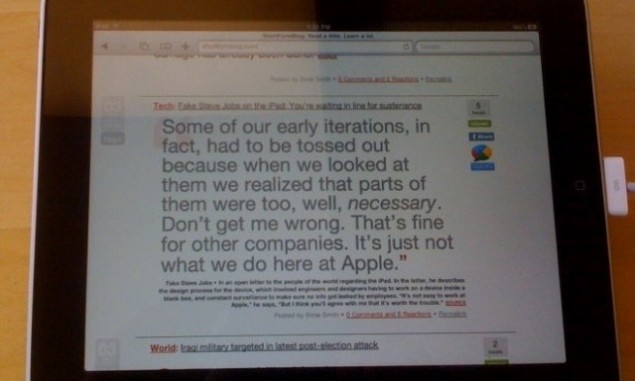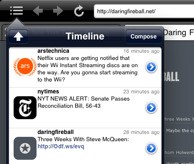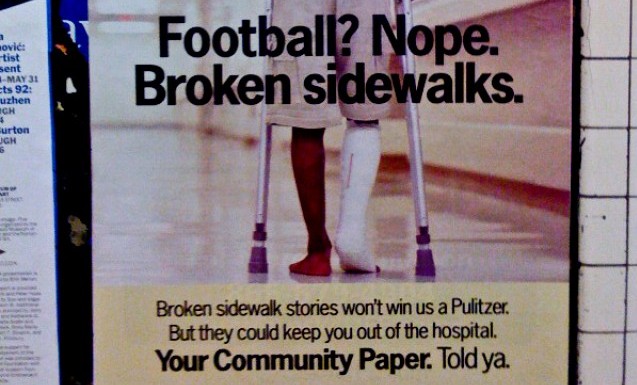Politics: The Washington Post wants to hide our mean comments
- I like the approach because it doesn’t limit speech. Anonymous loudmouths can still shout. But ‘trusted commenters’ will be easier to hear.
- Washington Post Ombudsman Andrew Alexander • Discussing the Post’s decision to switch to a tiered commenting system like Gawker. Why? Too many loudmouths who hate the liberal media and everything it represents. With the system, it adds a layer of trust that encourages more good comments by allowing users to promote those and leave the conspiracy theories behind. Seriously, though, they found that a lot of story sources were getting scared off because anonymous commenters were so mean. A new bride, for example, was told to get a life insurance policy for her husband because he was obese and would probably die soon. Yeah, the Post needs to fix that. source




 We blame Lee Abrams, right. Our friends at the Newport News, Va. Daily Press got some awful news this week, when they found out that much of their paper’s copy-editing and design facilities would be outsourced to the Tribune Corp. mothership in Chicago. 10 percent of their newsroom staff will get laid off as a result of this. Lee Abrams, above, is responsible for starting something similar with the radio industry. So, here’s a brief explanation of what’s up with the Daily Press:
We blame Lee Abrams, right. Our friends at the Newport News, Va. Daily Press got some awful news this week, when they found out that much of their paper’s copy-editing and design facilities would be outsourced to the Tribune Corp. mothership in Chicago. 10 percent of their newsroom staff will get laid off as a result of this. Lee Abrams, above, is responsible for starting something similar with the radio industry. So, here’s a brief explanation of what’s up with the Daily Press: